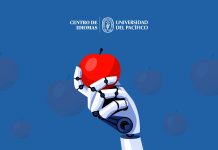What most novice English teachers dream of becoming skilled at are things such as how to begin the lesson in a diverse motivating manner every time, how to act when something unexpected occurs, what to do when pupils do not understand their explanations, along with how to react when they act up or misbehave, among various other awkward situations. The solution to these unavoidable circumstances perhaps could be found in a high-quality training course given by a cream of the crop educational institution.
However, after an uncertain period of time, the feeling surfaces over again. Once more, they may experience a strong sensation of shortage of strategies to deal with the new classes and groups of students. Probably then, they realize they need to improve their methods, techniques and so on.
Hopefully, this constant change of necessity could be compared with the types of needs in Maslow´s theory (1). According to this, needs are arranged in a hierarchical order which goes from the most basic (deficiency needs) to the highest ones (growth needs). The next level of necessity appears when the previous level has been satisfied.
Then, educators look for new methods to teach, in accordance to the expertise gained in the number of years they have spent at work as teachers, plus their studies and knowledge acquired in one way or another. If he is an apprentice instructor, he will search for the basics; for example, how to transmit some knowledge (“the child”). If he has more experience, he will try to improve his teaching methods (“the adolescent”). A few years later, he will try to support his practice with theory (“the young adult”). Later, he will easily find ways of applying the theory in different conditions (“the middle-aged”). Finally, the highest category will be the self-provider of knowledge who does research and who very likely creates new knowledge for himself and others (“the mature adult”).
How can we go from covering survival needs to producing new knowledge?
Picture this scene: You have been given a new computer with the latest programs. You feel extremely enthusiastic with your brand new tool precisely because it is innovative. However, the true is that the only program you know is Word, so you can only use your PC to write letters or draw different types of documents. Since you do not know how to use other programs, you are deprived of the possibilities to exploit the potential your computer holds.
Let’s imagine you are looking for formulas to teach the four skills, for instance. You go to different training courses, seminars, lectures and so on, but you are still trying to learn a novel touch to use the “Word” program. Thus, you end up saying: “there´s nothing different; it is always the same things”. It would be valid to say that one must be creative and curious and avoid looking for the same program; the same ready-to-use program. Instead, one must try to exploit the potential of those training courses and eventually become self-providers of knowledge. It might be time to little by little change into a “mature adult”.
It would be good to ask ourselves the following questions:
Do I teach the same way I used to teach a year ago?
How much of what I am using in my classes is MY OWN STUFF?
Am I still trying to learn what a novice teacher (the child) will?
Reference:
(1) McLeod, S. A. (2016). Maslow’s Hierarchy of Needs.
www.simplypsychology.org/maslow.html
Estimated reading time: 2 minutes, 54 seconds











Thanks a lot for your inspirational article.
I guide my students in such a way that I make them remember that language success may ultimately depend not only on ability but on persistence. They may have the potential to be brilliant language learners, but if they fail to put effort into it, chances are they will not learn much.
Being a successful student is a matter of discipline, perseverance, and a genuine passion to learn.
Thank you Lila. Yes, indeed. One does have to make an effort to do one´s best at all times whether when teaching or when studying. One has to look for improvement at all levels. Keep in touch.
Comments are closed.